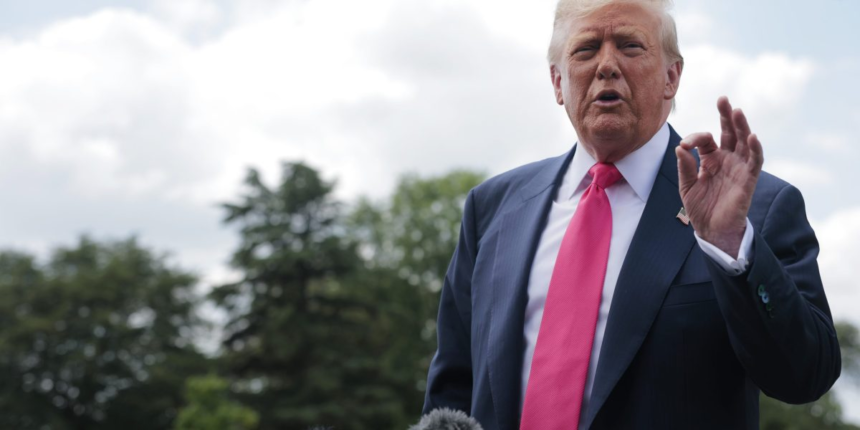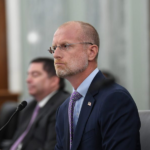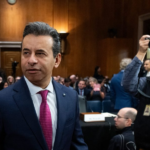“Australia stands for open and free trade — our cattle industry has significantly benefited from this,” Collins said in a statement.
Trump celebrated the announcement with a post on Truth Social that said: “Now, we are going to sell so much to Australia because this is undeniable and irrefutable Proof that U.S. Beef is the Safest and Best in the entire World.”
“This is yet another example of the kind of market access the President negotiates to bring America into a new golden age of prosperity, with American agriculture leading the way,” she said in a statement.
Australia has allowed imports of beef grown in the United States since 2019. But Australia has not allowed imports from the U.S. of beef sourced from Canada or Mexico because of the disease risk.
But the U.S. has recently introduced additional movement controls that identify and trace all cattle from Mexico and Canada to their farms of origin.
Australian authorities were “satisfied the strengthened control measures put in place by the U.S. effectively manage biosecurity risks,” Collins said.
The timing of the new, reduced restrictions has not been finalized.
“Yet we imported $3 billion of Australian beef from them just last year alone. They won’t take any of our beef. They don’t want it because they don’t want it to affect their farmers and, you know, I don’t blame them, but we’re doing the same thing right now,” Trump added.
Opposition lawmaker David Littleproud suspected the government was endangering Australia’s cattle industry to appease Trump.
“I want to see the science and it should be predicated on science. I’m suspicious of the speed at which this has been done,” Littleproud told reporters.
“We need to give confidence to the industry, but also to you (the public): this is not just about animal welfare, this is about human welfare, this is about BSE potentially coming into this country and having a human impact, so I think it’s important the government’s very transparent about the science and I don’t think it’s even beyond the question to have an independent panel review that science to give confidence to everybody,” he added.
Will Evans, chief executive of Cattle Australia, who represents more than 52,000 grass-fed beef producers across the nation, said he was confident the agriculture department had taken a cautious approach toward U.S. imports.
“The department’s undertaken a technical scientific assessment and we have to put faith in them. They’ve made this assessment themselves. They’ve said: ‘We’ve looked at this, we’ve looked at the best science, this is a decision that we feel comfortable with,’” Evans said.
“When you have a $75 billion (Australian $50 billion) industry relying on them not making this mistake, I’m sure they’ve been very cautious in their decision-making,” he added.
Beef prices have been rising in the U.S. due to factors that include drought and shrinking domestic herd numbers.
Australian demand for U.S. beef is likely to remain low for reasons including a relatively weak Australian dollar.
Albanese expects the pair will meet this year, although no date has been announced.
The two countries have had a bilateral free trade deal for 20 years, and the U.S. has maintained a trade surplus with Australia for decades.









